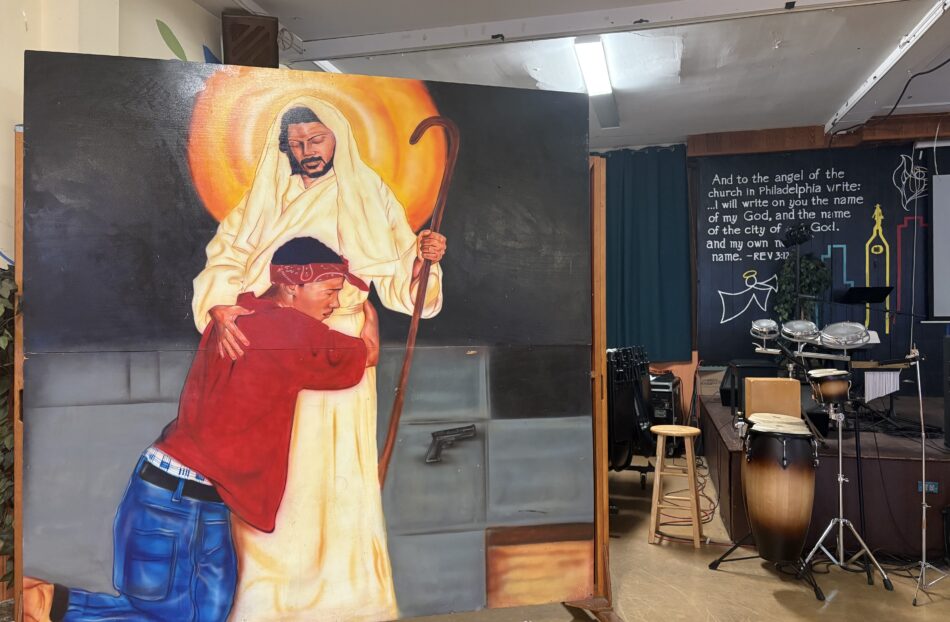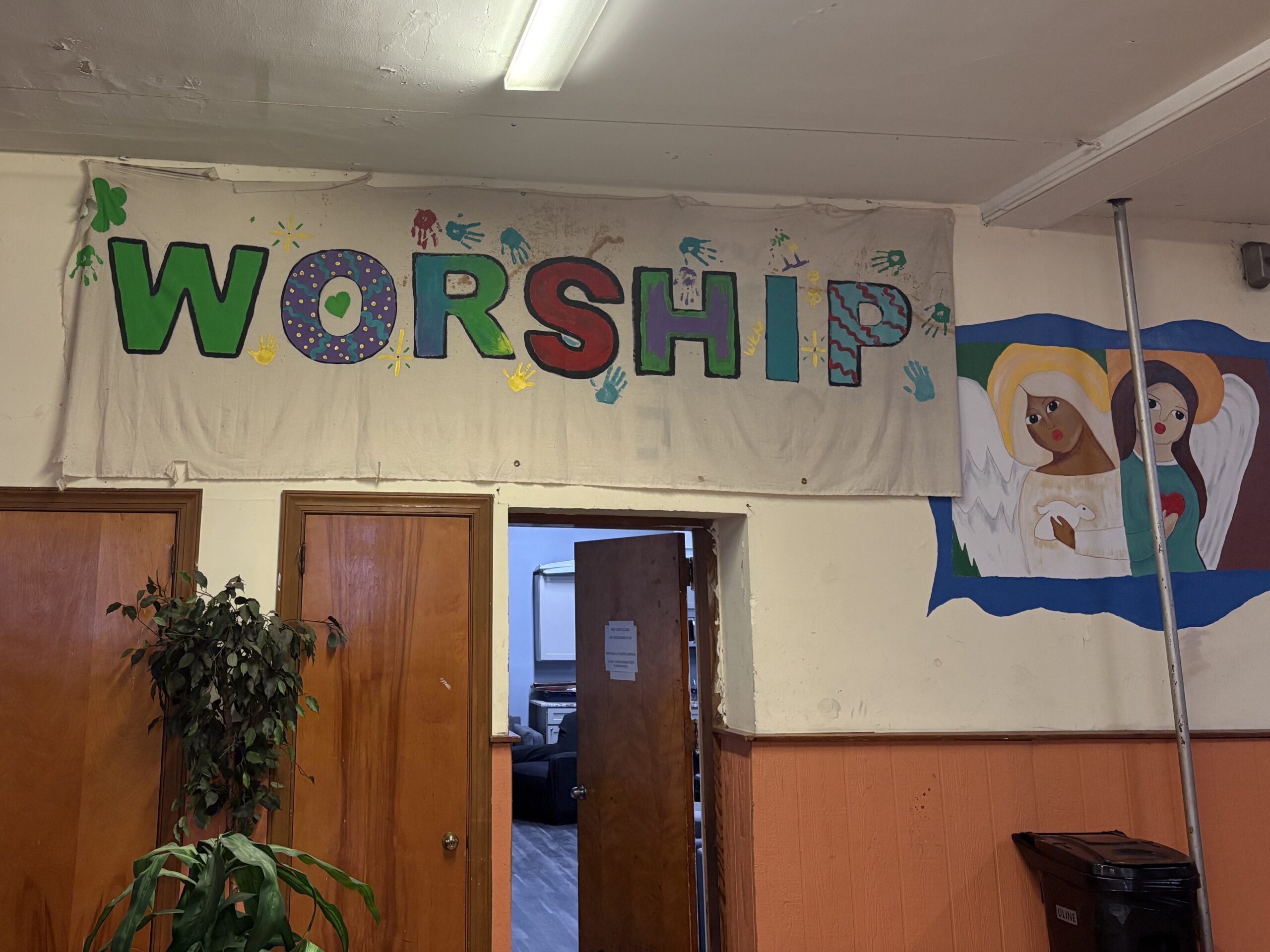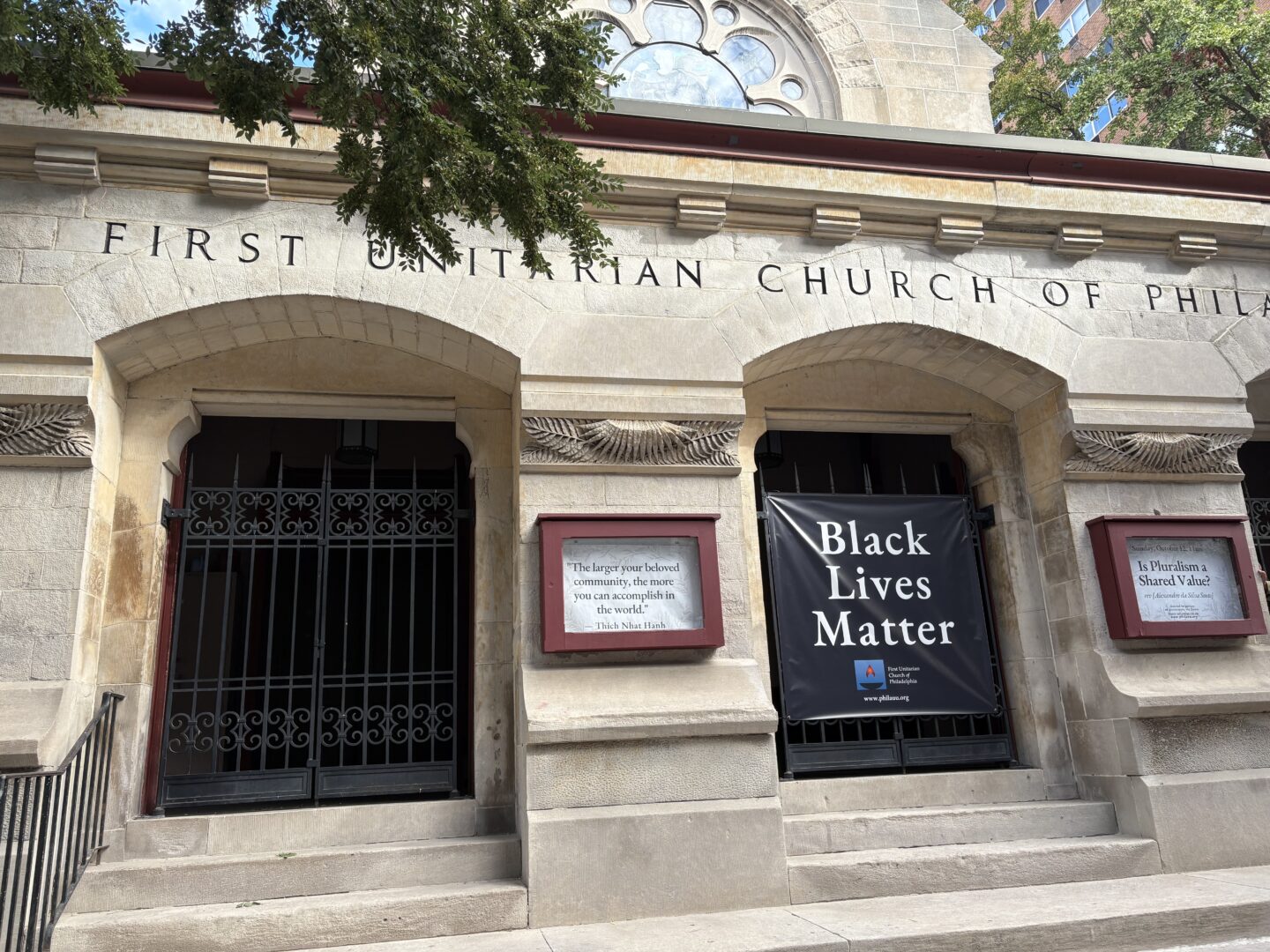
On a warm October Sunday inside West Kensington Ministry, 20 people pull up chairs and gather in a circle around the Reverend.
It’s a small church on the corner of Norris Square Park in the heart of North Philadelphia.
The group of congregants is diverse: They are different ages and races, some are immigrants. But they have one thing in common: many of them are wearing Eagles jerseys.
People greet one another with a smile and a hug before the service begins, and then gather around to listen to Reverend Adan Mairena, an activist pastor who has run this church for two decades.
Rev. Adan gives a sermon about the physical and mental gates that keep people from living their everyday lives. He passes the microphone around to members, who add their thoughts and talk about the gates that exist in their own lives. People speak of depression, anxiety, pain, and legal troubles.
This church is a safe space for the community to gather. But for some members, day-to-day life in Philadelphia has felt increasingly less safe since the Trump administration took office and began its crackdown on immigrant communities.

“There are people who are not around as often. You know, they’re in the shadows; they’re hiding out cause they’re afraid,” Rev. Adan said.
He said that since Trump took office in January, he frequently makes phone calls to members of his congregation who are afraid of being picked up by ICE.
This is reality for many immigrants in the city: In the first four months of 2025, there was an 81% increase in average deportations per month in Philadelphia, compared to the year before under Biden.
But for Rev. Adan, it is not the first time he’s seen this kind of attack on immigrant communitites. In 2014, when the Obama administration began a record-breaking deportation campaign, Rev. Adan housed a woman and her family originally from Honduras who was resisting her deportation order, as a part of a campaign with the New Sanctuary Movement in Philadelphia.
The New Sanctuary Movement is a grassroots organization that fights for immigration justice through faith.
Rev. Adan said being a part of the movement helps him put his faith into action, “It helps me practice what I preach.”
Despite the concerns Rev. Adan has had in the past year, he also has hope for the future.
“We’re not this inhumane and evil, right? We’re not,” he said. “In the next [election] we need to act as a cohesive, educated group of people that ultimately want the best for ourselves and our country.”
Allies through faith

In Center City, the historic First Unitarian Church of Philadelphia is much larger than the West Kensington Ministry. The church is also a member of the New Sanctuary Movement. Outside are large signs that read, “Black Lives Matter” and “This Church Supports Reproductive Choice”.
Reverend Abbey Tennis leads the First Unitarian congregation. She’s a white, queer woman who had a passion for both faith and activism since becoming involved with her religious community as a teenager.
When Trump entered the White House, Rev. Abbey said there was an increased turnout to Sunday services. She said she thinks this is because people need hope and comfort and have a desire to work together for change.
“We have a very strong shared sense of purpose when the world is on fire,” Rev. Abbey said.
Activism is not new for the First Unitarian Church. Their first minister, Rev. Furness, was known to be one of the few abolitionist ministers in Philadelphia before the Civil War. Rev. Abbey said that since many members of the church’s congregation have economic and white privilege, this is an important time for her community to step up in their activism.
“For us, I feel like it’s worth taking quite a lot of risk to do public witness for our values,” Rev. Abbey said.
To Rev. Abbey, religion and activism cannot be separated, “There’s just so much injustice in the world. So, if we care about one another, we have to work for justice.”


Be the first to comment